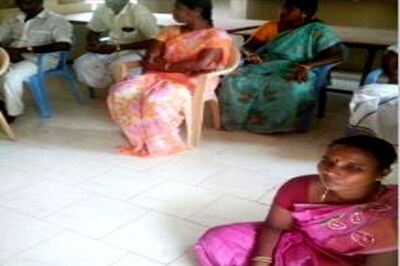
views
Dengue is ravaging Southeast Asia this year due in part to rising temperatures and low immunity to new strains. Hundreds have died in Philippines; threefold increased cases in Vietnam; hospitals are overrun in Malaysia, Myanmar and Cambodia.
Dengue is a mosquito-borne viral infection, occurring around the monsoon seasons, causing a severe flu-like illness and, sometimes causing a potentially lethal complication called severe dengue. The incidence of dengue has increased 30-fold over the last 50 years. Up to 50-100 million infections are now estimated to occur annually in over 100 endemic countries, putting almost half of the world’s population at risk. Dengue is passed along to humans by infected mosquitoes, which thrive in crowded, hot and humid areas.
Cases have surged across Southeast Asia this year, with around 670,000 infected and more than 1,800 people dead in the region, according to an AFP tally of national and World Health Organization data.
Experts say it's the worst outbreak in years.
Warmer weather is one factor — temperatures in July 2019 were the hottest ever recorded globally, and mosquitoes love hot weather — coupled with the introduction of new dengue strains that have spread among populations with no immunity.
Long-term trends are also at play: breakneck urbanisation in Asian megacities, a massive increase in international travel and trade and the cyclical nature of outbreaks.
"That creates the perfect ingredients for the dengue epidemic to happen," Rachel Lowe, assistant professor at the London School of Hygiene & Tropical Medicine, told AFP.
Even the widespread use of plastics has contributed -- as things like garden pots and takeout containers collect water they create perfect breeding pools for mosquitoes.
One group of scientists is rolling out trials to breed dengue-resistant bugs in a bid to tackle one of the world's leading mosquito-borne illnesses, raising hopes the untreatable disease can finally be beaten.
The World Mosquito Program (WMP) has pioneered a method where male and female Aedes Aegypti mosquitoes are infected with the disease-resistant bacteria called Wolbachia before being released into the wild. In a matter of weeks, baby mosquitoes are born carrying Wolbachia, which acts as a disease buffer for the bugs -- making it harder for them to pass on not only dengue, but Zika, chikungunya and yellow fever.
First tried in northern Australia, it's been tested in nine countries around the globe, including in Vietnam where early results are promising. "We have seen a remarkable reduction of dengue cases after the release," explained Nguyen Binh Nguyen, project coordinator for WMP in Nha Trang.
His team set free around half a million Wolbachia-infected mosquitoes last year in Vinh Luong, a crowded dengue-prone district in southern Vietnam. Since the trials, dengue cases are down 86 percent in Vinh Luong compared to nearby resort town Nha Trang.




















Comments
0 comment